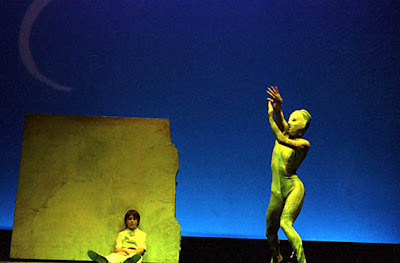
The purpose of the introduction of Anatomy of criticism (N.Frye 1957) is to defend the need for literary criticism, to distinguish the nature of genuine literary criticism from other forms of criticism, and to clarify the difference between direct experience of literature and the systematic study of literary criticism.
There are a number of reasons why the introduction is labeled as 'polemic'. In defending the need for literary criticism, Frye opposes a notion common to Tolstoy and Romantic thought that 'natural taste' is superior to scholarly learning (and by extension, criticism). Frye also accuses a number of methods of criticism (e.g. Marxist, Freudian, Jungian, Neo-classical, etc.) as being embodiments of the deterministic fallacy. He is not opposed to these ideologies in particular, but sees the application of any external, ready-made ideology to literature as a departure from genuine criticism. This results in subjecting a work of literature to an individual's pet philosophy and an elevation or demotion of authors according to their conformity to the pet philosophy.
Another point is to distinguish the difference between personal taste and genuine criticism. Personal taste is too easily swayed by the prevailing morals, values and tastes of the critic's society at that point in history. If taste succumbs entirely to such social forces, the result is the same as that of consciously adopting an external ideology described above. Yet even if there is a consensus among critics that the works of Milton are more fruitful than R. D. Blackmore (to use Frye's example), a critic contributes little by saying so. In other words, value judgments contribute little to meaningful criticism.
In place of meaningless criticism, Frye proposes a genuine literary criticism which draws its method from the body of literature itself. Literary criticism ought to be a systematic study of works of literature, just as physics is of nature and history is of human action. Frye makes the explicit assumption that in order for systematic study to be possible, the body of literature must already possess a systematic nature. Frye claims that we know very little about this system as yet and that the systematic study of literature has progressed little since Aristotle.
Frye concludes his introduction by addressing the weaknesses of his argument. He mentions that the introduction is polemic, but written in first person to acknowledge the individual nature of his views. He concedes that the following essays can only give a preliminary, and likely inexact, glimpse of the system of literature. He admits to making sweeping generalities that will often prove false in light of particular examples. Finally, he stresses that while many feel an "emotional repugnance" to schematization of poetry, the schematization should be regarded as an aspect of criticism, not the vibrant, personal, direct experience of the work itself--much as the geologist turns away from her systematic work to enjoy the beauty of the mountains.
Download ebooks on http://www.frenchtheory.com/ - See that post with different algorithms in metabole - See the journal French Metablog with today different posts - Jean-Philippe Pastor



